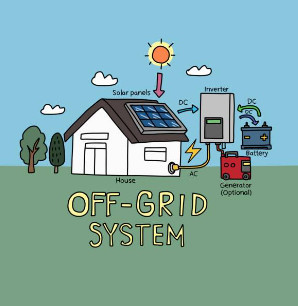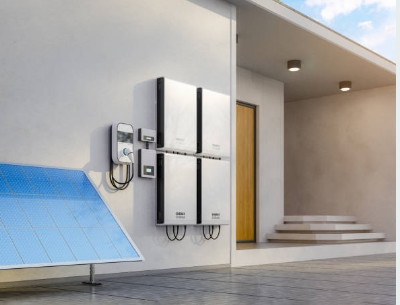views
Introduction
In the quest for sustainable energy solutions, hybrid solar inverters have emerged as a powerful and versatile technology. Unlike traditional inverters that only convert DC power from solar panels to AC power for immediate use, hybrid solar inverters integrate multiple functionalities into a single device. They manage power from solar panels, the grid, and battery storage, providing a comprehensive energy management system that enhances efficiency, reliability, and cost-effectiveness.
What is a Hybrid Solar Inverter?
A hybrid solar inverter combines the functionalities of a solar inverter and a battery inverter. It converts the direct current (DC) generated by solar panels into alternating current (AC) for use in homes or businesses and can also store excess energy in batteries for later use. This dual functionality makes hybrid inverters versatile and efficient, ensuring a reliable power supply even during grid outages.
How Hybrid Solar Inverters Work
Hybrid solar inverters perform several critical functions:
1. DC-to-AC Bidirectional Conversion: They convert DC power from solar panels to AC power for use in homes or businesses. Excess energy can be stored in batteries for later use or fed back into the grid.
2. Power Regulation: These hybrid solar inverters manage the fluctuating power output from solar panels, ensuring stable operation of the entire system.
3. Intelligent Monitoring and Control: Advanced monitoring systems allow users to track the system’s performance and control settings remotely through mobile apps or web-based platforms.
Key Features of Hybrid Solar Inverters
Integrated Battery Management: Ensures optimal charging and discharging of batteries, extending their lifespan.
Dual Power Source Utilization: Seamlessly switches between solar power and grid electricity.
Energy Storage for Backup: Stores excess solar energy in batteries, providing power during outages or peak demand times.
Enhanced Energy Efficiency: Maximizes the use of solar energy, reducing reliance on the grid.
Advantages of Hybrid Solar Inverters
Power Resiliency: Ensures uninterrupted power supply even during grid outages.
Cost Savings: Reduces long-term electricity costs by optimizing energy use.
Environmental Impact: Promotes the use of renewable energy, reducing carbon emissions.
Applications of Hybrid Solar Inverters
Hybrid solar inverters are widely used in:
Residential Settings: Creating green smart homes.
Commercial Buildings: Leading the new green office trend.
Industrial Facilities: Contributing to sustainable development.

Choosing the Right Hybrid Solar Inverter
When selecting a hybrid solar inverter, consider:
Power Capacity: Ensure the inverter meets your energy needs.
Battery Compatibility: Choose an inverter compatible with your battery type.
Efficiency: Opt for inverters with high conversion efficiency.
The Future of Hybrid Solar Inverters
As renewable energy technologies continue to advance, hybrid solar inverters are set to play an increasingly important role. They will become integral to smart grids, contributing to more efficient energy management and greater energy independence. The integration of advanced technologies like artificial intelligence and machine learning will further enhance their performance and reliability.
Conclusion
Hybrid solar inverters are a pivotal innovation in the renewable energy sector. They offer a smart and sustainable solution for managing energy needs, enhancing efficiency, and promoting environmental sustainability. Whether for residential, commercial, or industrial use, investing in a hybrid solar inverter is a step towards a greener future.



Comments
0 comment